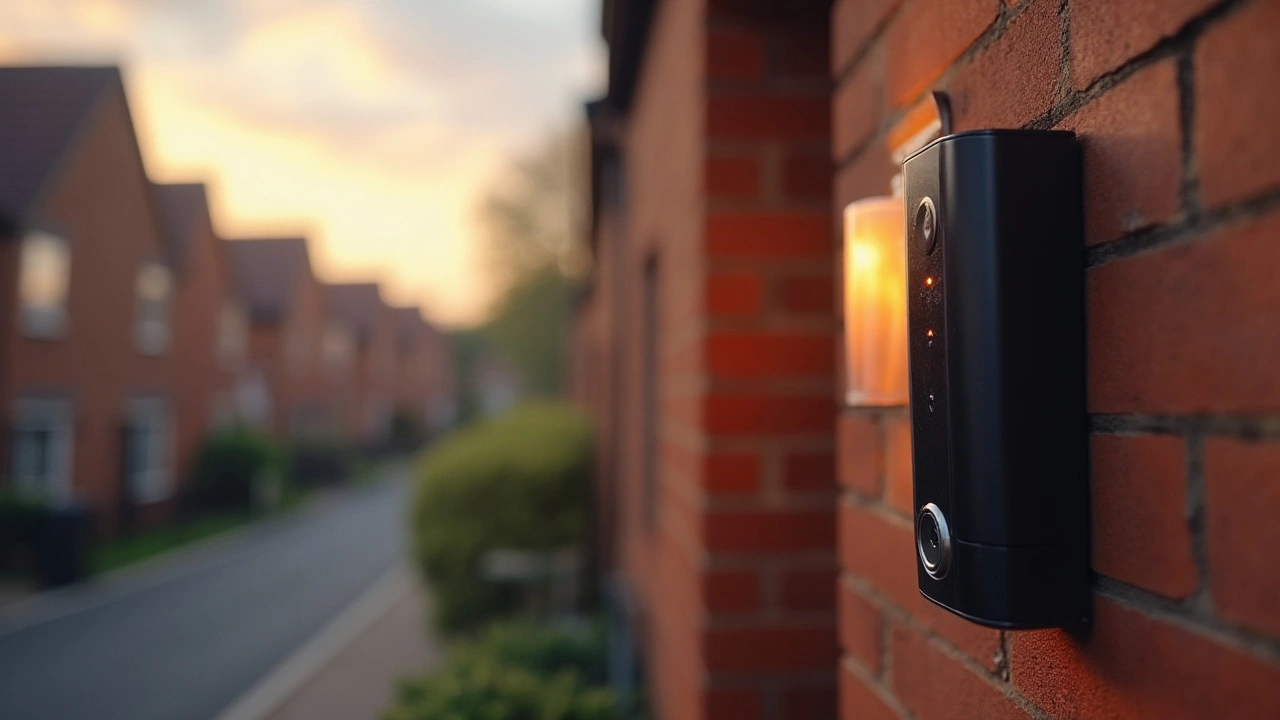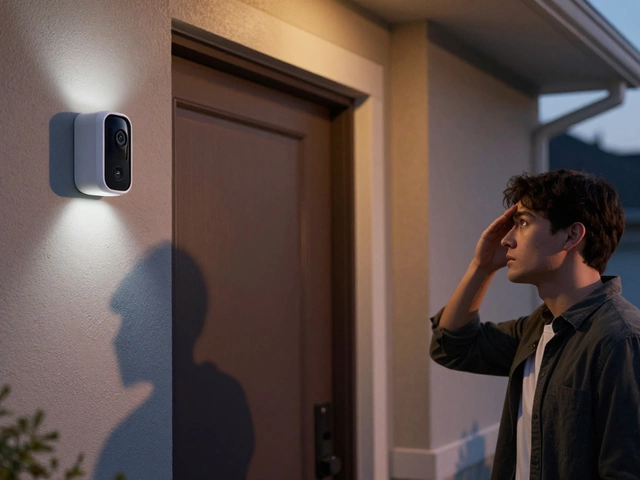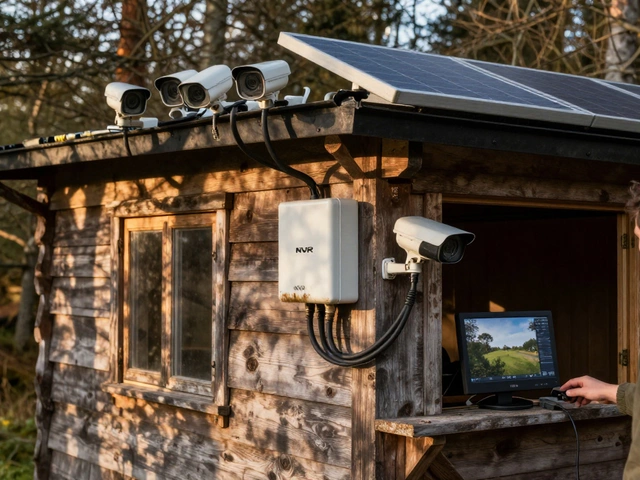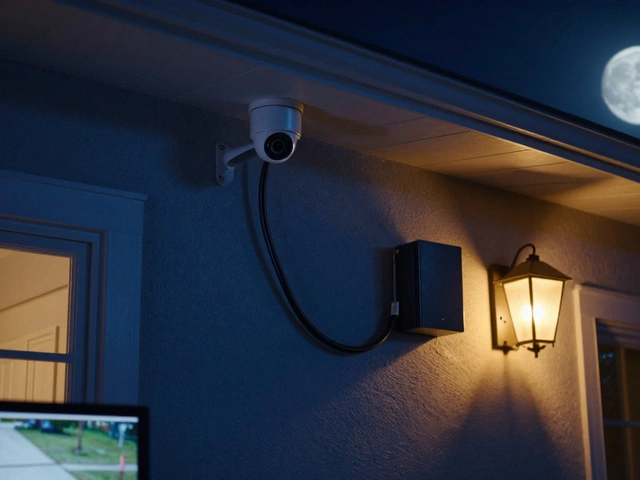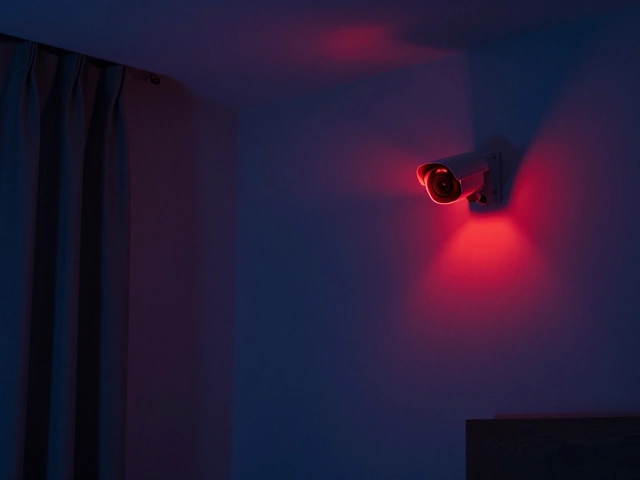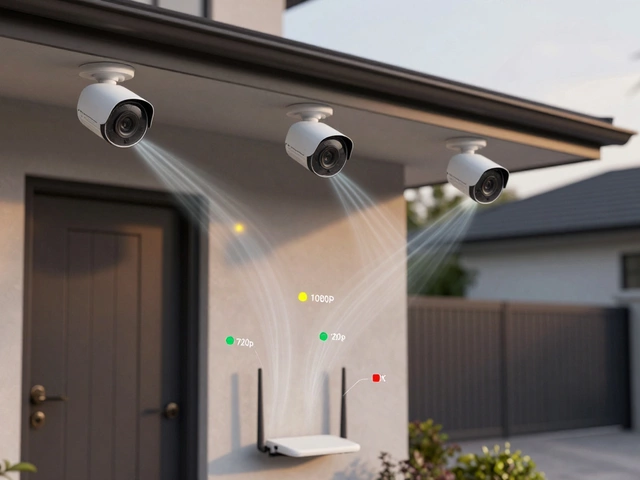Smart doorbells are more than just modern trinkets; they're a blend of technology and security that keeps you connected to the world right outside your door. As these devices gain traction in UK households, a vital question arises — should they be hardwired?
Hardwiring a smart doorbell might seem like a straightforward choice. After all, it promises a constant power supply, which means no more worries about batteries dying at inopportune times. But is that convenience worth the effort involved in installation, or the potential difficulties that might arise?
In this article, we'll journey through the landscape of smart doorbells, weigh the merits of hardwiring, and spotlight some potential hurdles. If you're considering upgrading your home's security with a smart doorbell, this guide will help you understand the best path to treading towards a smarter, safer home.
- Understanding Smart Doorbells
- Benefits of Hardwiring
- Challenges of Hardwiring
- Making the Right Choice
Understanding Smart Doorbells
Smart doorbells are a fascinating convergence of technology and utility, representing a significant leap forward in home security and convenience. These sophisticated devices, often equipped with video cameras and microphones, allow homeowners to see, hear, and speak to visitors at their door, even when they're miles away. The integration of motion sensors alerts you the instant someone approaches, offering a real-time window into your doorstep activities. In the UK, the adoption of smart doorbells has surged, primarily driven by their capability to deter potential burglars and package thieves.
Imagine the convenience of answering your doorbell from your office or the grocery store. This is possible because smart doorbells can connect to your home's Wi-Fi, transmitting live data to your smartphone through a dedicated app. Major players in the market like Ring, Nest, and Arlo offer diverse features catering to varying security needs and preferences. According to a study conducted by Statista in 2023, about 28% of households in the UK have installed some form of smart security system, with doorbells being the most popular due to their functionality and ease of use.
One might ask, why the growing popularity? The answer lies in the blend of security, convenience, and connectivity offered by these devices. For instance, a key feature of most smart doorbells is the ability to record video clips when someone is at your door. These recordings can be vital for police investigations should any crime occur at your property. The addition of two-way audio enables direct communication with delivery personnel, guests, or anyone else at your front door. This interactivity transforms the way we engage with our home’s entrance, providing a form of remote control that would have seemed like science fiction not too long ago.
Another alluring aspect of smart doorbells is their compatibility with other home automation systems. Many of these devices can integrate seamlessly with smart assistants like Amazon Alexa or Google Assistant, allowing for voice-activated control. Imagine telling Alexa to show your front door on your smart TV or receiving an audible announcement when someone rings the bell. The ecosystem of smart technology is expanding, and smart doorbells are a critical node in that network. However, with the question of whether to hardwire these devices, considerations like reliability and power supply consistency come into play. Hardwired connections ensure that your device is always powered, removing the burden of regular battery maintenance.
While all this sounds promising, it’s essential to also weigh the potential privacy concerns that come with smart doorbells. Some users worry about the recording of every visitor in front of their homes, raising questions about data storage and potential misuse. Companies have been addressing these concerns by enhancing encryption methods and providing options for secure cloud storage.
A report by Which? Magazine highlights, "Smart doorbells provide an eye at the entry of homes, reducing burglary risks by 34% within neighborhoods that endorse interconnected security systems."
Indeed, as more families in the UK take steps towards securing their premises with smart doorbells, understanding their operational dynamics and benefits becomes paramount. These technologies not only represent an investment in safety but also a move towards smarter living. However, as you contemplate the adoption of a smart doorbell, considering whether to opt for a battery-powered or hardwired device can influence both practical and long-term outcomes.
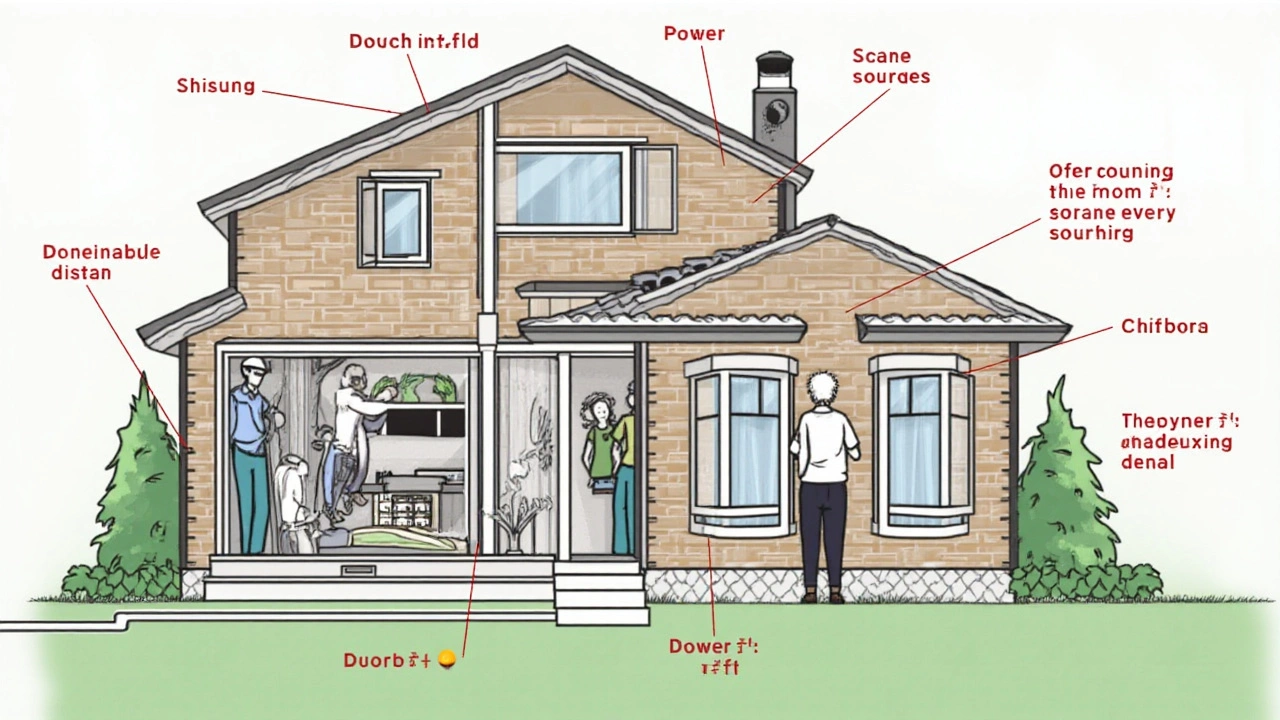
Benefits of Hardwiring
Choosing to hardwire your smart doorbell can bring a host of advantages that significantly enrich your home's security and convenience. One of the primary benefits is the consistent power supply. Unlike battery-powered options that require frequent monitoring and replacement, hardwired setups provide uninterrupted power, ensuring your doorbell is always ready to function at its best. This means you won’t miss that critical visitor notification or video capture because the battery died at the wrong moment. A reliable power source is particularly crucial in areas prone to extreme temperatures, which can affect battery performance.
Another appealing advantage is the integration capability with other home systems. Hardwired smart doorbells often easily connect to existing electric chimes, allowing you to maintain traditional doorbell functions while benefiting from smart technology. This seamless integration provides a smooth transition for those accustomed to conventional chimes, making the upgrade feel less like a technological leap and more like a natural enhancement. For households already invested in a broader smart home ecosystem, hardwired models often offer better compatibility and communication with other devices, creating a more unified smart home experience.
In a 2023 report by the Smart Home Consumer Statistic Institute, it was noted, "Homes with hardwired smart doorbells reported a 20% increase in satisfaction regarding device reliability when compared to their battery-operated counterparts." Such insights highlight the peace of mind that comes with a hardwired setup, where the risk of unexpected downtime is minimized. While batteries are prone to depletion and require constant management, hardwired solutions simplify user experience by reducing maintenance needs.
"For families valuing uninterrupted security and integration, hardwired smart doorbell installations present a straightforward solution," comments Ron Evans, a renowned expert in smart home technology.
Moreover, on an environmental note, by minimizing battery usage, you're also reducing your home's carbon footprint. Fewer batteries discarded over time contribute to environmental sustainability, which is an increasingly important consideration for modern households. This makes the decision to hardwire not just about personal convenience but also about making a small yet meaningful impact on the environment.
From enhancing functionality to being more eco-friendly, the benefits of opting for a hardwired installation are clear. For those looking to maximize their home security investment, a continuous power source through hardwiring offers a highly compelling case. The choice to hardwire involves careful consideration of your specific needs and home setup, but the advantages offer rewards that often make the initial effort and cost worthwhile.

Challenges of Hardwiring
Choosing to hardwire a smart doorbell in the UK home involves more than simply following the instructions on the box. While it offers the promise of uninterrupted power, the process of hardwiring presents several unique challenges that every homeowner should be aware of. The very first hurdle is installation itself. Traditional doorbells have been designed with simplicity in mind, whereas a smart doorbell typically requires compatibility with existing electrical systems. Depending on your home's age, the current wiring may not suffice, demanding an upgrade or even a full electrical overhaul to support a new system.
Once installation starts, placement becomes crucial. A smart doorbell not only needs a place that allows general visibility and ease of access but also needs a location that's feasible for electrical wiring. This might mean drilling into brick, modifying door frames, or running wires in less-than-ideal conditions, adding to the complexity and potential cost. Feeling deterred? Let’s note it’s not a one-size-fits-all task compared to battery-powered units that can be mounted almost anywhere without concern. As tech author David Livingston once noted,
'Hardwiring is an art, not just a science, and it requires patience and precision to yield the desired benefits.'
Beyond the physical logistics, another challenge is maintenance and troubleshooting. Unlike battery-powered smart doorbells which offer quick fixes through swap-out options, issues in hardwired systems require hands-on experience with electrical systems. It's not just about swapping a battery but sometimes dealing with circuit issues, short-outs, or faulty transformers. This can intimidate many and might necessitate professional help. Moreover, if you encounter emergent issues like fluctuating power or a complete loss of connectivity, there's often more involved than a simple software reset.
The cost factor also needs consideration. While many tech enthusiasts praise the long-term cost efficiency of hardwiring, the initial expenditure is rarely negligible. Aside from labor costs, additional materials like transformers, adapters, and sometimes unexpected parts can quickly drive up expenses. If a chosen device fails to work as expected with existing door chimes or other installations, unforeseen purchases may arise. The potential need for professional electricians only adds to this financial burden, making the total investment for a hardwired smart doorbell substantially higher.
Moreover, thinking about technological advancements raises another issue: future-proofing your smart entryway. With technology evolving at a rapid pace, hardwired systems may face compatibility concerns down the line. This is particularly true if you're keen on upgrading your device regularly to enjoy the latest technological innovations or if your existing setup isn’t as adaptable as newer models. Battery-powered options, while often seen as less sophisticated, present a certain flexiblity since they often adapt better to upgrades with little hassle.
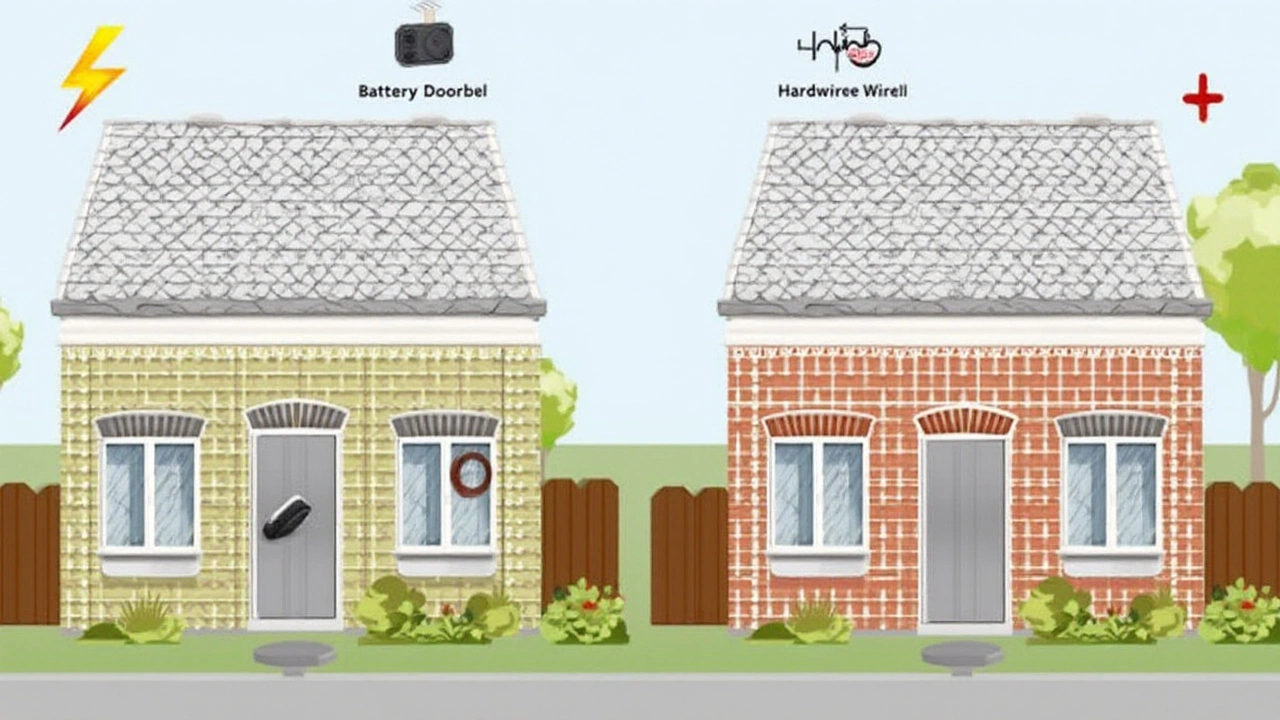
Making the Right Choice
Deciding whether to hardwire your smart doorbell is an important step in creating the ultimate home security experience. One must consider a variety of factors before making a choice, such as the architectural constraints of your home, your technical proficiency, and the long-term benefits of a reliable power source. A hardwired connection ensures your smart doorbell is always powered, which can be a major advantage if you live in an area prone to power outages or if you're the kind of person who prefers a hassle-free technology experience. However, it's crucial to also weigh the initial installation effort and any potential disruptions during setup.
An often overlooked aspect is the aesthetic outcome of hardwiring your device. While some appreciate the seamless look of a wired installation with no visible batteries, others might find the extra labor of running wires through walls discouraging, especially in older homes with thick walls. If you're someone who enjoys DIY projects or loves tinkering with home improvements, hardwiring could even be an enjoyable endeavor that adds a sense of accomplishment upon completion. For those less handy, enlisting a professional may be necessary, which could influence the budget you're willing to allocate to your smart doorbell project.
It's also worth considering the technological features of your chosen smart doorbell model. Many modern designs offer advanced integration capabilities if hardwired, such as improved motion detection and real-time alerts. That said, a wireless option might suffice for individuals prioritizing basic operations over additional functionalities. An article in The Guardian noted,
"For those who frequently travel or rent properties, a wireless solution offers unmatched convenience without sacrificing essential security features."This perspective underscores a key point: personal lifestyle and practical needs should ultimately guide your decision.
If you're on the fence about which direction to take, researching and understanding the power consumption requirements of smart doorbells can provide clarity. A hardwired doorbell operates consistently and can support enhanced video features without taxing battery life, which is beneficial for those who require frequent video streaming or live in high-traffic areas. Meanwhile, battery-operated systems often necessitate periodic recharges or replacements, an aspect not everyone is prepared to manage over time. To complicate matters further, not all smart doorbells are designed equally. Some models are uniquely engineered to optimize battery life, offering nearly the same performance metrics as their wired counterparts.
Ultimately, the choice between a hardwired and a battery-powered smart doorbell boils down to personal preferences and lifestyle needs. Engaging in a bit of introspection about what you value most in your home security experience will make the decision process a more customized and satisfying endeavor. Take into account current trends and technological advancements to ensure your investment is both practical today and sustainable in the future. Whether opting for the robust dependability of a hardwired system or the simple flexibility of a wireless solution, understanding your options empowers you to make the right choice for your unique situation.

